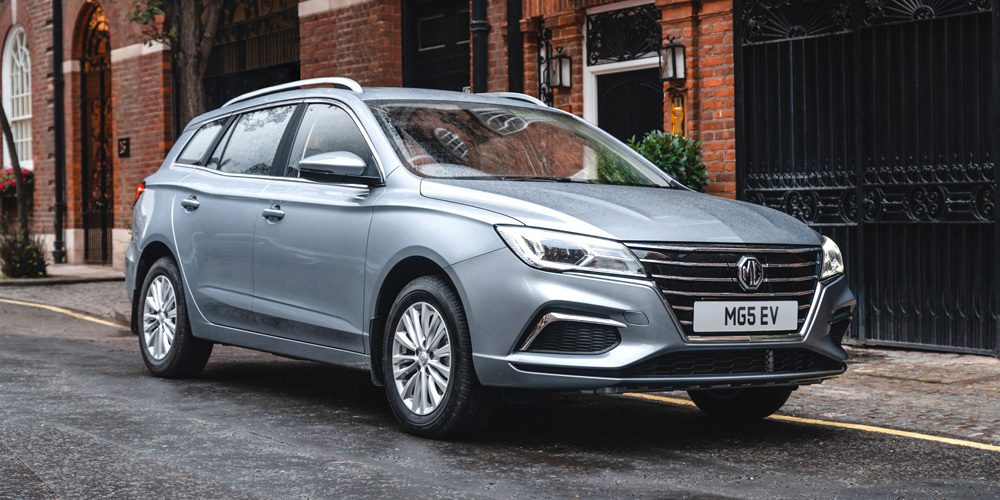Road Tax on EVs in the UK, what you need to know is that buying a car involves handling all paperwork and paying taxes, so it’s important to know what you’re signing up for.
One of the main taxes British drivers must pay is the Vehicle Excise Duty, widely known as road tax. EV drivers are exempt from paying this tax but must still register their car for tax.
Here is a guide with everything you need to know about paying the road tax in the UK.
TIP: Buying a car for Uber is now easy and hassle-free with Splend. Join our car subscription plan, and we take care of everything — PHV licence, PHV insurance, MOT, and car tax. All you have to do is pick up the car and start driving.
Contents
- What is road tax?
- When do I need to pay the road tax?
- How is road tax calculated in the UK?
- How do your car’s CO₂ emissions affect your road tax?
- How does your car’s list price affects your road tax?
- How does your car’s registration year affects your road tax?
- How much is the road tax in the UK?
- Do electric cars pay road tax in the UK?
- Will all electric cars pay road tax in 2025 in the UK?
- Do I need to register my car for road tax even if I don’t pay any?
What is road tax?
Road tax, also known as VED (Vehicle Excise Duty), must be paid by any drivers whose cars are registered in the UK or driven on UK roads. The road tax rate isn’t fixed and depends mainly on the car’s CO₂ emissions but also on your car’s list price and the year it was registered.
When do I need to pay the road tax EV?
The road tax must be paid when the car is first registered. This will cover your car for the next 12 months. You’ll then be able to choose to pay the road tax every 6 or 12 months.
TIP: The road tax fares are lower when paid every 12 months.
How is road tax calculated in the UK?
The road tax system is split into two main rates — the first-year rate varies depending on your car’s tailpipe CO₂ emissions, and the second-year rate is a fixed rate for each car category (electric, hybrid and petrol or diesel).
The road tax you must pay also depends on the car’s list price and the year it was first registered.
How do your car’s CO₂ emissions affect your road tax?
When it comes to the car’s tailpipe emissions, it’s simple — the fewer emissions your car produces, the smaller the road tax you must pay annually:
- Fully electric cars (EVs) are exempt from paying the road tax ev
- Plug-in hybrid cars (PHEVs) currently pay reduced road tax
- Petrol or diesel cars pay different rates in accordance with the emission category they fall into.
How does your car’s list price affect your road tax?
For any car, except fully electric cars, with a list price of £40,000 or above, you must pay a premium £390 rate in addition to any applicable road tax charges. The list price is considered the car’s published price before any discounts. Before buying a premium car, make sure to check the list price with your car dealer to know the road tax you’ll be paying.
IMPORTANT: You only have to pay this additional rate for five years from the second time the vehicle is taxed.
Therefore, when you first register the car, the premium rate won’t be added to your road tax.
How does your car’s registration year affects your road tax?
All cars registered since March 2001 have their road tax calculated according to CO₂ tailpipe emissions. For cars registered before March 2001, the tax is calculated based on engine size.
The road tax fares also differ between cars registered after April 2017 and between March 2001 – April 2017.
How much is the road tax in the UK?
Since it depends on many factors, it isn’t easy to give a solid answer to this question. Here are the average road tax rates for cars registered after April 2017.
- Electric cars – you don’t have to pay any road tax ev for both the first year and all subsequent years.
- Plug-in Hybrid cars – depending on your car’s emissions, road tax for PHEVs is likely to cost £0 – £130 for the first year and £170 each year after that.
- Petrol or diesel cars – the fares vary depending on the car’s emissions and can go anything between £10 – £2,605 for the first year and £180 starting with the second-year payment.
- Premium cars – for cars with a list price over £40,000, starting the second year, you’ll pay £570- £600 for petrol or diesel cars and £560- £590 for hybrid cars.
For cars registered between 2001 and 2017, the fares differ, ranging from £20- £695 for all types of cars. There isn’t a premium surcharge for cars registered before 2017.
Do electric cars pay the road tax in the UK?
IMPORTANT: Currently, all fully electric battery cars are exempt from paying the Vehicle Excise Duty, no matter their list price.
However, this exemption is set to be removed starting April 2025, meaning that Zero-Emission cars registered after April 2017 will pay the lowest first-year rate of road tax (VED only). This means a £10 charge.
From the second year of registration onwards, EV drivers will have to pay the standard tax for the emission category they fall into, so they’ll likely have to pay £170 annually.
Will all drivers pay road tax EV in 2025 in the UK?
If the government’s decision remains unchanged, yes, all electric cars, regardless their registration year, will pay road tax EV starting 2025.
However, the additional surcharge for premium electric cars will apply only to electric cars registered on or after 1st April 2025.
Do I need to register my car for tax if I don’t have to pay any?
Yes. You must register your vehicle for tax even if you’re exempt from paying any. It’s a legal requirement, just like being registered with the DVLA, having a roadworthy car and a valid MOT certificate.
About Splend
We enable people to make money by driving. Our vision is a future where every on-demand driver can be successful.
We are car subscription specialists. Don’t take our word for it—drivers rate us excellent on Trustpilot. We can set you up with a brand-new or new-model car on our Flexi own plan, plus we provide the training and support you need to become an Uber driver that’s more profitable, safer, and fulfilled.
Drop by our London Hub at 393 Edgware Road Cricklewood, London, email us, or say hello on 0333 016 4331.


![How to Become a Uber Driver [Complete Guide] | Splend](https://www.splend.co.uk/wp-content/uploads/2020/02/how-to-become-an-uber-driver-in-london-2.jpg)

